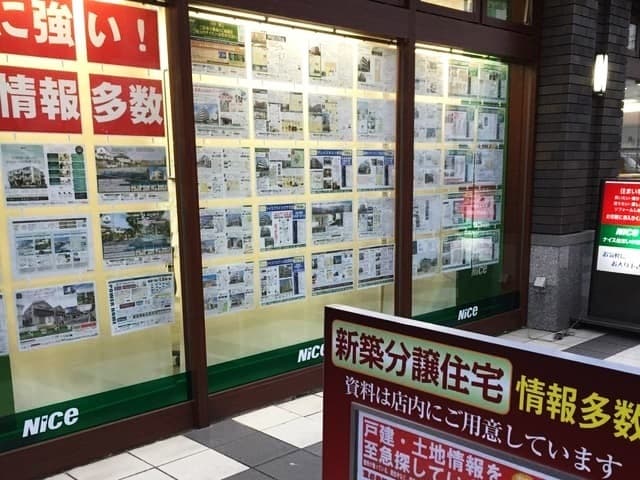Information To Renting An Condo In Japan For Foreigners

|
Discovering your dream condominium in Japan – sounds simple, proper? Not likely! Language obstacles, guarantor woes, and hefty move-in prices can flip your condominium hunt into an actual headache. However with somewhat know-how and the fitting assist, you’ll be able to navigate the rental market and discover your excellent place.
Right here you’ll examine rental condominium requirements, Japanese terminology for dimension and house, rent-determining elements, and foreigner-friendly actual property firms. |
To lease an condominium, tenants ought to go to actual property brokers in every neighborhood and look by copies of accessible models. If a potential tenant expresses curiosity in a selected condominium, the agent contacts the owner to verify whether it is nonetheless out there and if a go to will be scheduled. Actual property brokers usually have a duplicate of the condominium’s format and the rental charges. When talking with an agent, describe precisely what you’re in search of, your preferences, and any circumstances that could be a deal-breaker for you.
The gap from the closest practice station, whether or not or not the constructing is constructed of concrete, whether or not or not it has a unit tub, and your price range are all elements that the brokers usually think about. As soon as the agent understands what you’re in search of, she or he will start to supply spots, and it is possible for you to to schedule viewings to see your potential new condominium.
Japanese Condo Structure Phrases
- 1R: One room is equal to a studio condominium. This fashion of condominium typically has a bed room/kitchen and a rest room/rest room mixture room. The typical dimension is 12 to twenty sq. meters.
- 1K : A 1K is sort of an identical to a 1R; nevertheless, with a 1K, the bed room and kitchen are separate.
- 1DK: A 1DK has a bed room and a kitchen/eating space. The general dimensions are barely bigger than a 1R or 1K.
- 1LDK: A 1LDK includes a separate bed room and lounge. Residences of this kind usually vary from 40 to 60 sq. meters in dimension.
- 1SLDK: A 1SLDK is actually an identical to a 1LDK room, except a giant walk-in closet.
Moreover the scale, there are different elements that decide the price of the lease, which embrace:
- Location: The costliest flats are positioned near metropolis facilities. The farther an condominium is from the closest practice station, the inexpensive it’s. Residences close to smaller stations (the place specific trains don’t cease) are inclined to have decrease rents. Then again, remember the fact that if the condominium is positioned too near a practice monitor, you’ll hear a practice rumbling exterior your window each couple of minutes.
- Place of flats: The course through which the condominium faces is without doubt one of the particulars seen on Japanese property listings. Residences going through south obtain a variety of pure mild through the day, making it simple to dry laundry. Residences going through south are typically dearer. Residences going through east shall be vibrant within the morning, making them superb for early risers, which lets you reap the benefits of the solar’s place. Residences going through west will stay barely brighter because the solar units, which helps to maintain the condominium hotter within the evenings all through the chilly season. Residences going through north could seem cooler in the summertime as a result of a lot of the daylight shouldn’t be immediately heating the room, however this additionally signifies that winters shall be bitterly chilly.
- Age of constructing: It is important to know whether or not the constructing was constructed earlier than 1981, between 1981 and 2000, or after 2000. The reason being that since 1981, development necessities have grow to be stricter, with buildings constructed after 2000 topic to extra stringent seismic codes.
- Condo: Apato, “Condo” often refers to previous buildings that home small flats. This type of constructing is fabricated from wooden or mild metal and often consists of solely two tales. The partitions are skinny, and you may usually hear sounds out of your neighbors’ properties.
- Mansion: Manshon “Mansion” refers to trendy buildings which have bigger flats. This kind of constructing usually consists of three or extra tales and is fabricated from metal and bolstered concrete. Hire usually is increased than the ‘Apato’.
Course of Of Signing A Rental Contract
As you most likely already know, signing a rental contract with a traditional actual property firm is each costly and time-consuming. Relying on the corporate and condominium, just a few refundable and non-refundable charges should be paid, typically starting from two to 10 months’ lease. Particulars as follows:
- Reservation Price “Tetsukekin – 手付金”: The tetsukekin is paid whenever you apply for an condominium however earlier than signing the precise rental contract. It ensures that the condominium shouldn’t be given to another person and that you don’t change your thoughts about renting it. It’s often equal to 1 month’s lease and is returned to you as soon as the formal contract is signed.
- Safety Deposit “Shikikin – 敷金”: The safety deposit is usually equal to a couple months’ lease. That is used to cowl any potential future harm to the condominium. Whenever you transfer out, you’ll obtain your deposit minus the price of repairs. In Japan, landlords have as much as 60 days to return the deposit.
- Key Cash “Reikin – 礼金 “: It is a non-refundable fee made to the owner equal to a couple months’ lease. (Reikin is “gratitude cash” that new renters pay to landlords for the privilege of transferring in).
- Company Processing Charges “Chukai Tesuryo – 仲介手数料”: It is a charge paid to the actual property agent for companies completed, usually equal to 1 month’s lease.
- Upkeep Price “Kanrihi – 管理費”: Some flats may have a month-to-month upkeep charge to cowl expenditures shared by all tenants, which is added to the lease “Yachin – 家賃”.
- Contract Renewal Price “Koshinryo – 更新料”: Residences are usually rented for not less than two years. If the tenant wish to lengthen their keep just a few months earlier than the contract’s deadline, the settlement is renegotiated. The contract renewal charge is generally equal to 1 month’s lease. (That is one other “present” to the owner for permitting you to resume your contract).
Use A Guarantor Firm
- A Japanese nationwide
- A proof of secure revenue and monetary background
- Somebody below the age 65
The guarantor charge varies relying on the guarantor firm and it could possibly vary from 10% to 100% of the month-to-month lease. Earlier than signing, double-check your contract for any future bills. A assure cost of 10,000 JPY per 12 months, or 10% to 30% of the lease, shall be paid when the lease settlement is renewed. To use for his or her companies, it’s best to submit the next paperwork, which differ based mostly on the guarantor firm:
- Utility type for guarantor firms
- Identification paperwork (My Quantity card, Residence card, medical health insurance card, and many others.)
- Proof of revenue (Employment certificates, Wage statements, ultimate tax return, and many others.)
Foreigner-Pleasant Actual Property Firms
Renting an condominium is neither low cost nor simple, and it may be significantly difficult for foreigners in comparison with locals as a consequence of a number of elements, as you learn above. Moreover the language barrier and guarantor requirement, there are additionally upfront prices. You have to pay a deposit, a safety deposit, agent charges, and the non-refundable key cash, which might add as much as a number of months’ lease.
These days, there are sources out there to assist foreigners navigate the rental market. There are foreigner-friendly actual property companies that usually have English-speaking employees. Additionally, in Tokyo and different giant cities, a no-deposit condominium trade has emerged that’s typically extra versatile with guarantor necessities and upfront prices however tends to be dearer. These flats are available a wide range of types and costs, starting from non-public flats to dormitory-style housing. Many would even have primary furnishings, saving you from having to buy furnishings. Listed here are a few of these firms:









